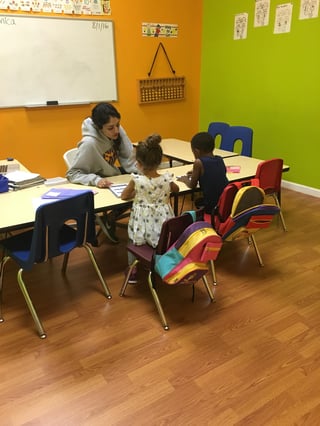Over recent years Common Core has become a signature staple of the educational system. However, it’s recent popularity tends to receive mixed reviews from parents and local educators. In order to analyze the success of this educational model, we must begin by understanding what Common Core is. Common Core is a state based standard that is created to generate a national curriculum. It is simply the criteria that further prepares students for future educational opportunities such as the workplace and college.
 Diane Ravitch, a former Assistant Secretary of Education argues that these standards are causing more damage than benefits for students. The main concern, Ravitch states, is that teachers and educators face severe repercussions if their students do not perform well on standardized testing. She goes as far as to say, “The law required that all schools reach 100 percent proficiency as measured by state tests or face harsh punishments”. Ravitch argues that Common Core creates an impossible standard that can never be met. The methods of testing are expensive and do not result in any changes in the longevity of a student’s educational success, whereas if the funding for the preparation of students for standardized testing is placed on creating lesson plans that specifically target the areas in which children are struggling there would be greater success with our students. She also argues that using standardized testing to enforce a national standard of learning targets students that are impoverished and further racially segregated the existing divide; students in lower socioeconomic educational districts tend to be minorities. In summation, Ravitch argues that Common Core tests, are expensive, ineffective, and are biased in the sense that “failure rates on the Common Core tests are staggeringly high for black and Hispanic children, students with disabilities and English-language learners”.
Diane Ravitch, a former Assistant Secretary of Education argues that these standards are causing more damage than benefits for students. The main concern, Ravitch states, is that teachers and educators face severe repercussions if their students do not perform well on standardized testing. She goes as far as to say, “The law required that all schools reach 100 percent proficiency as measured by state tests or face harsh punishments”. Ravitch argues that Common Core creates an impossible standard that can never be met. The methods of testing are expensive and do not result in any changes in the longevity of a student’s educational success, whereas if the funding for the preparation of students for standardized testing is placed on creating lesson plans that specifically target the areas in which children are struggling there would be greater success with our students. She also argues that using standardized testing to enforce a national standard of learning targets students that are impoverished and further racially segregated the existing divide; students in lower socioeconomic educational districts tend to be minorities. In summation, Ravitch argues that Common Core tests, are expensive, ineffective, and are biased in the sense that “failure rates on the Common Core tests are staggeringly high for black and Hispanic children, students with disabilities and English-language learners”.
Jack Markell, in his letter to the editor, in response to Ravitch argues that she is just “further perpetuating a myth”. His argument states that regardless of what background students come from, these national standards are causing students to work harder to bridge the gap in education. Markell goes on to say that the issue is not in the Common Core standard itself but rather in the implementation of these standards. To completely eliminate Common Core would be the same as taking three steps forward and taking four steps backwards. One thing however that both authors can agree on is, that the future of education and a student’s constant improvement is based on a joint effort amongst, students, teachers, parents, along with tutors and extra curricular programs.
For further reading:
http://www.nytimes.com/2016/07/31/opinion/sunday/common-core-regrets.html?_r=0





